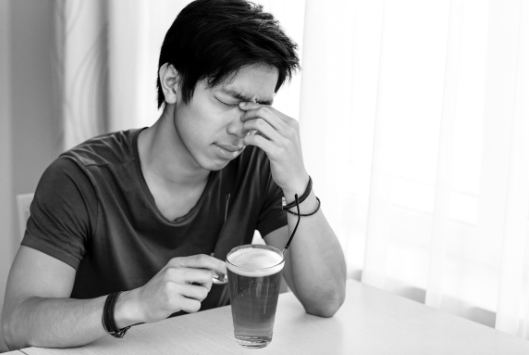Underage Drinking
Youth who start drinking before age 15 years are six times more likely to develop alcohol dependence or abuse later in life than those who begin drinking at or after age 21 years.
The legal age to drink alcohol is 21 years old, yet many teens try alcohol much earlier and for several reasons:
As a way to fit in or they feel the need to give in to peer pressure.
They like the way drinking alcohol makes them feel, unaware of the strong addicting effect alcohol has on their adolescent brain.
They feel that drinking alcohol makes them more grown up, parents may even feed into this fallacy by providing alcohol, thinking it is a rite of passage.
Although we may think that it is “only” alcohol, it is important to remember that alcohol is a powerful mood-altering drug. Teen’s minds and bodies still developing at this stage of life. Due to brain development, at this time in their life teens also lack judgment and coping skills to handle alcohol wisely, putting them at a higher risk for sexual violence, aggression, motor vehicle accidents and mental illness (depression/anxiety/suicide).
For more: https://www.cdc.gov/alcohol/fact-sheets/underage-drinking.htm

Health Effects
Scientific evidence from several studies shows that the early use of alcohol has a negative impact for adolescents. The Substance Abuse and Mental Health Administration stated that youth who start drinking before the age of are six times more likely to develop alcohol dependence or abuse later in life than those who begin drinking at the age of 21 or later. One of the possible reasons for this phenomenon is that the adolescent brain is not fully developed until the age of 24, so early consumption of alcohol can have a negative impact in the brain’s developmental stages including an increased number of health related issues later life.
Youth who drink alcohol are more likely to experience
- School problems, such as higher absence and poor or failing grades.
- Social problems, such as fighting and lack of participation in youth activities.
- Legal problems, such as arrest for driving or physically hurting someone while drunk.
- Physical problems, such as hangovers or illnesses.
- Unwanted, unplanned, and unprotected sexual activity.
- Disruption of normal growth and sexual development.
- Physical and sexual assault.
- Higher risk for suicide and homicide.
- Alcohol-related car crashes and other unintentional injuries, such as burns, falls, and drowning.
- Memory problems.
- Abuse of other drugs.
- Changes in brain development that may have life-long effects.
- Death from alcohol poisoning.
Legal FAQ
It is a law that makes it illegal for any person under the legal age to consume alcoholic drinks on private property. The Private Property Ordinance does not make it illegal to furnish alcohol to individuals under the age of 21. That’s already illegal. The ordinance makes it illegal to provide alcohol on private property, regardless of who provides the alcohol (except for religious reasons with the permission and in the presence of a parent or legal guardian).
